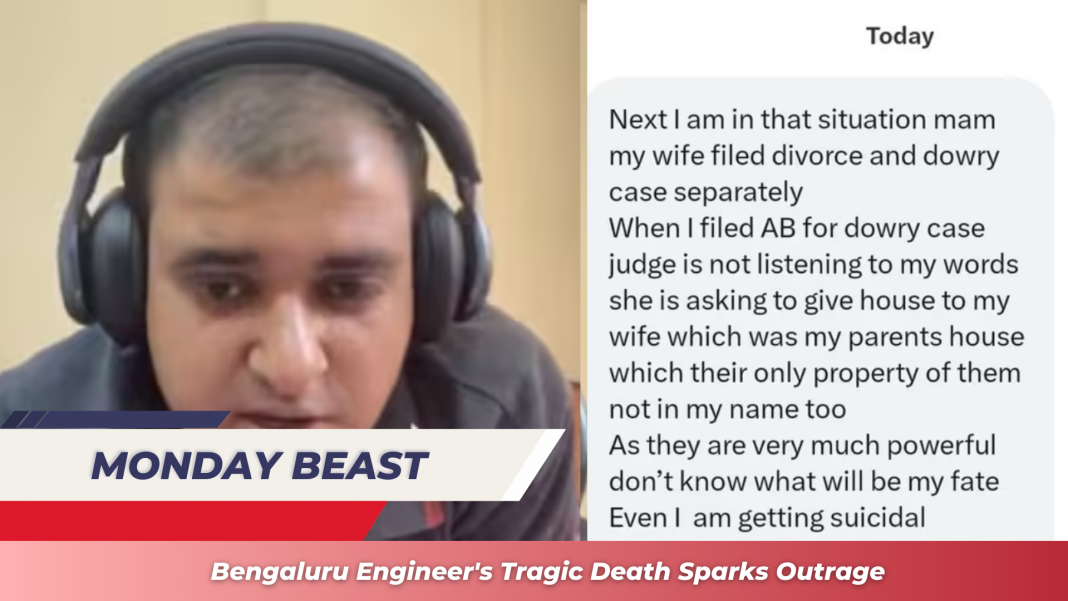The recent death of Bengaluru engineer Atul Subhash has ignited a wildfire of emotions across social media. This heartbreaking case took a turn when a 90-minute video and a lengthy suicide note surfaced, detailing his struggles. Atul, just 34, accused his estranged wife and her family of relentless harassment. He even named Reeta Kaushik, a family court judge, as partially responsible for his tragic decision. This revelation has left many grappling with various questions about justice, harassment, and societal accountability.

Online reactions have been swift and fierce. One user, Akshit Singh, boldly tagged Accenture on X, formerly known as Twitter. He insisted the company must sever ties with Subhash’s wife, demanding, “Your time starts now.” It’s a testament to how social media amplifies calls for corporate accountability, especially in serious matters. Activists, friends, and even strangers have united in one voice. Their shouts for justice rise louder each minute. Accenture, facing increasing pressure, made its account private. It seems they are trying to navigate these turbulent waters.
Many are pondering if firing someone is the right response. Journalist Nupur J Sharma voiced a sensitive opinion, arguing that Subhash’s wife should be arrested instead. She believes laws need reform to protect men from harassment. It raises an essential question: Where do we draw the line between justice for the victim and presuming guilt?

The legal landscape surrounding such cases is complex. An FIR has been filed against Atul’s wife, Nikita, and her family under serious sections of the BNS. Yet, what does accountability look like in situations like this? The law often feels slow and cumbersome, catching up only after immense social outcry. Many question whether justice will truly be served as they tune in, anxiously awaiting updates from Bengaluru police.
Atul’s death raises broader questions about mental health and awareness in society. It’s a stark reminder that many people suffer in silence. While he documented his struggles, how many others remain unheard? We must foster a culture where mental health is openly discussed and validated. The stigma surrounding mental health issues inhibits honesty and vulnerability. As we reflect on Atul’s story, we wonder—what measures can be introduced to prevent another tragedy?

This case also sheds light on the responsibility of institutions like Accenture. Should companies be more active in maintaining a safer work environment for their employees? When corporate values clash with personal actions, how can brands uphold accountability? It’s a tricky balance. Corporate dismissals for personal actions are debated fiercely. Some argue it tarnishes reputations, while others insist it’s vital to uphold ethical standards.
As discussions unfold, there’s an emotional toll felt by friends and family. Atul’s loved ones are left to navigate their grief amidst public scrutiny. The community mourns, holding on to the hope that his story will incite change and awareness about harassment and mental health. Everyone feels the heaviness of his loss.
Through all this turmoil, there’s one message that resonates: The system needs to evolve. Humanity must prioritize kindness and understanding. Perhaps Atul’s tragic end will serve as a catalyst for change, prompting discussions about harassment, mental health, and systemic reform. The time to reflect, engage, and act is now. Only then can we truly honor Atul Subhash’s memory.




